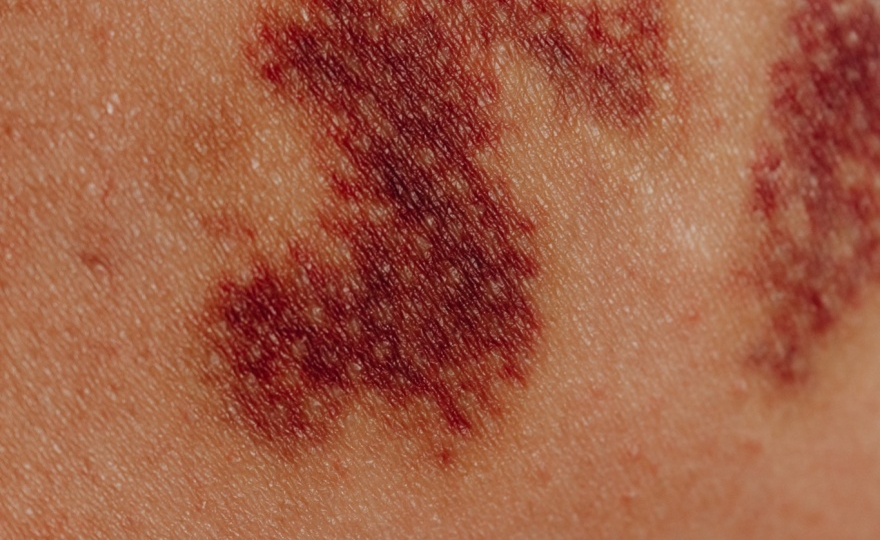
Personal injury cases let people get compensated for the injuries and damages they faced due to someone else’s negligence or recklessness. However, many people don’t really know what a personal injury claim is and how they can file it.
Filing a personal injury claim could be difficult if you don’t have adequate knowledge of the legal system in Canada. There are a lot of things that need to be considered before you file and back your claim in court. In this blog, let’s take a look at what personal injury cases are and how you can file a personal injury case in Canada.
What is a Personal Injury Case?
Personal injury is any physical, mental, or emotional harm inflicted upon an individual due to the careless or deliberate acts of another individual or entity. Examples of personal injury include incidents such as slipping and falling, car accidents, workplace mishaps, medical negligence, and situations involving faulty products.
In order to back claims of personal injury, it is crucial to compile evidence and necessary paperwork related to the incident. In Canada, a personal injury claim can be filed to seek compensation for bodily injuries, psychological distress, and financial setbacks resulting from the accident. This coverage includes costs associated with medical treatment, lost income, pain and suffering, and other damages due to the accident.
Evidence and Documents Required for Personal Injury Cases
To strengthen your personal injury claims, you need to gather various types of evidence. These include:
Witness Statements
Obtaining statements from witnesses who observed the accident can provide valuable evidence. These statements offer detailed accounts of the incident and can help determine liability. Witnesses can include bystanders, co-workers, passengers, or other drivers involved in the event.
Medical Records
Having comprehensive medical records is crucial in proving personal injury claims. These records document your injuries, the medical treatment you received, and the expenses incurred due to the accident. They should contain admission dates, diagnoses, test results, treatment plans, and other relevant medical information related to your injuries.
Photographic and Video Evidence
Visual evidence, such as photographs and videos, plays a significant role in supporting personal injury claims. These images can document the accident scene, vehicle or property damage, and the injuries sustained by those involved. It is important to capture these visuals as soon as possible after the accident, ensuring they are clear and of good quality to establish their authenticity and strengthen their value as evidence in court. Additionally, documenting the progression of injuries during recovery can further support your claim.
Police Reports
Police reports are official documents that provide essential information about the accident, including the date, time, and location of the incident. These reports are generated based on the official investigation conducted by law enforcement officers at the scene.
Records of Your Injuries
Keep a detailed record of your injuries, including the type of injury, the extent of damage, and the medical treatment received. This information helps establish a timeline for your recovery and demonstrates the impact of the injuries on your daily life. The severity of your injuries and how they’ve affected your life, as indicated by these records, will be considered when determining your compensation demand.
Record of Lost Wages
If your injury prevents you from working for a specific period or permanently, maintain a record of the wages you have lost due to the injury. This record should include details of your employment, such as your job title, responsibilities, salary, hours worked, and any benefits or bonuses you may have lost as a result. The calculation of your personal injury claim will take into account the lost wages and any potential future loss of earnings.
Medical Bills and Expenses
Document all hospital bills, doctor’s fees, prescription costs, rehabilitation expenses, and any other medical bills related to your injury. Keep receipts and invoices to establish the total cost of your medical treatment. Testimony from medical professionals can also be valuable in proving the extent and impact of your injuries.
Best Practices for Filing a Personal Injury Case
Here are some of the best practices for filing a personal injury claim:
Collect Sufficient Evidence
To increase your chances of winning your personal injury claim, it is crucial to gather as much evidence as possible. Similar to other cases, having the necessary evidence to support your claim will likely sway the judge and jury in your favor. Therefore, if you find yourself in an accident, it is advisable to gather an extensive range of evidence.
In situations where your injuries are not severe, you can personally visit the accident site and search for evidence indicating negligence by another party, whether it be an individual or a company. For instance, if you sustained an injury due to a defective product, you should verify its faulty nature before proceeding with a compensation claim against the manufacturer.
Likewise, if you are involved in a car accident, you can collect evidence in the form of CCTV camera footage or recordings from your vehicle’s dashboard camera. Moreover, if you suffered an injury in a workplace accident, it is recommended to contact witnesses and obtain their statements to serve as evidence. However, if your injuries prevent you from gathering evidence yourself, it would be wise to enlist the assistance of a personal injury lawyer who can manage the evidence-gathering process on your behalf.
Prioritize Medical Treatment
Many individuals don’t get medical treatment and handle their injuries at home following an accident. However, this decision can significantly impact your personal injury claim. Regardless of the severity of your injuries, it is crucial to seek medical attention at a hospital. Doing so allows you to determine the precise extent of your injury, which can then be utilized to maximize the compensation claimed in your personal injury case.
Furthermore, medical records detailing the severity of your injuries and the expenses incurred for treatment and medication play a vital role as evidence. By demonstrating substantial financial costs for emergency treatments, you can request the defendant to cover these expenses in your personal injury claim. Similarly, if your injuries are more severe and are substantiated by medical reports, you can aim for higher compensation.
File Your Compensation Claim Promptly
In Canada, the deadline for filing a compensation claim is one year from the accident date. However, it is advisable not to wait until the last minute to initiate your personal injury claim. It is recommended to file the claim as soon as you begin to recover from your injury. In cases where the injuries are less severe, it is even better to file the claim within a week after the accident.
By doing so, you can present the judge and jury with a clear indication that the injuries were a direct result of the accident, thereby strengthening your position to maximize compensation in your personal injury claim. Delaying the filing of a claim can make it difficult to find the necessary evidence and may raise suspicions of tampering with the evidence if significant time has passed before taking action.
Consider Future Expenses
When filing a personal injury claim, many people only include present or past expenses, such as the costs of emergency treatment or repairing damaged property. However, including future expenses in your claim can help you maximize your compensation.
Some of the expenses you should include in your claim can be covered for future medical treatments, including therapies like psychotherapy for post-traumatic stress disorder (PTSD) or physiotherapy to aid in the healing process and ongoing medication, financial compensation to make up for the wages you’ll probably lose, cover your bills while you are unemployed due to your inability to work because of the injury, etc.
Hire a Personal Injury Lawyer
All of these things are hard to do for people who don’t have adequate knowledge of the legal system and have just been involved in an accident. It’s best that you hire an experienced personal injury lawyer to handle your personal injury case for you.
A personal injury lawyer will file the case for you, gather evidence, gather all the records and documents required, and deal with all legal matters promptly. Moreover, working with a lawyer massively increases your chances of winning the case and getting fair compensation.
If you’re looking for an experienced personal injury lawyer to hire in Mississauga, Canada, Nanda & Associate Lawyers can help you!
We are one of the most trusted law firms in Canada and have a team of experienced personal injury lawyers who can handle all sorts of personal injury cases. Moreover, we also have family lawyers, real estate lawyers, wills and estate lawyers, business lawyers, and more.
Reach out to us now for further details.









